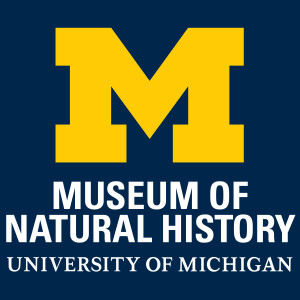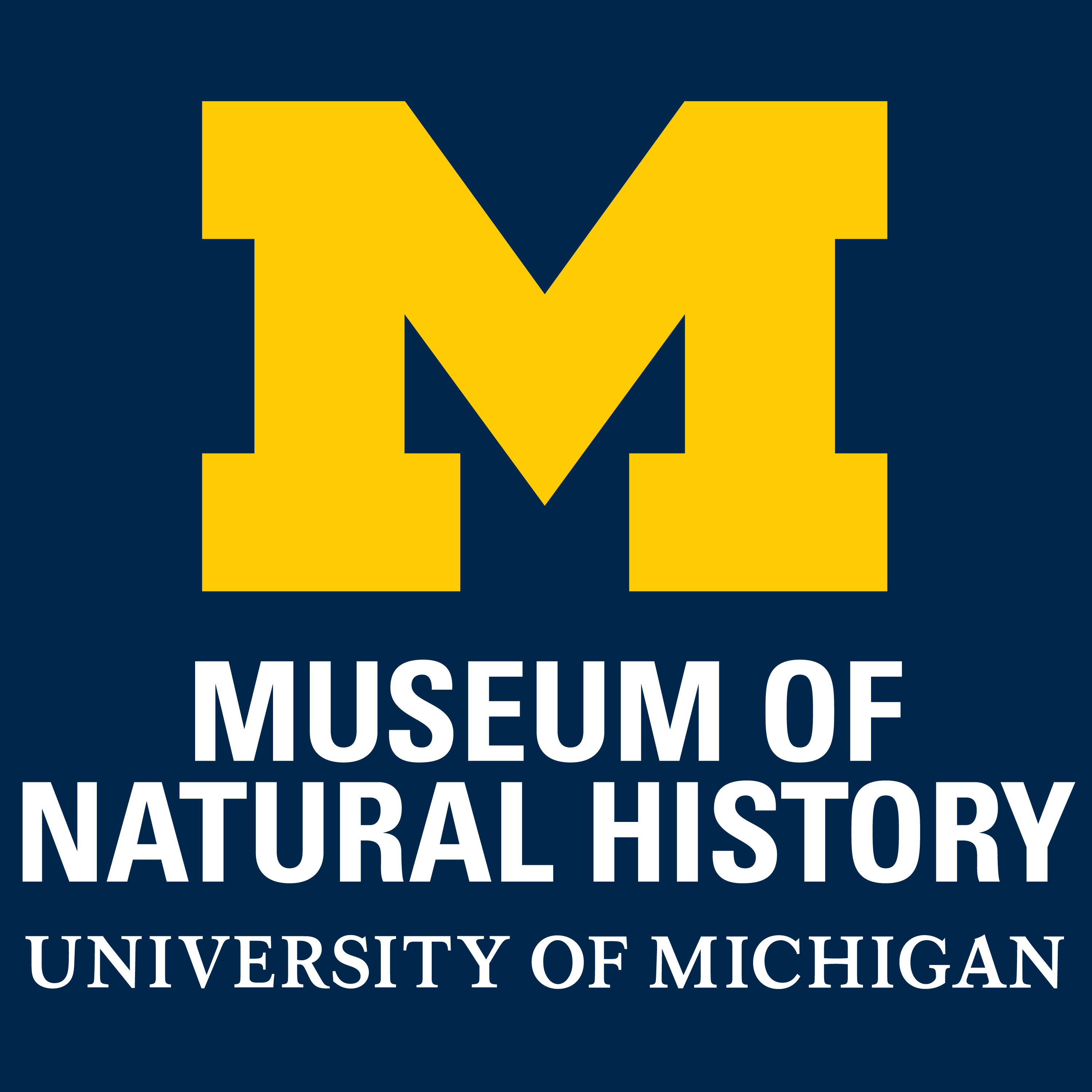
Episodes

Wednesday Jul 30, 2025
Special Episode: The New Cretacious Period Diorama!
Wednesday Jul 30, 2025
Wednesday Jul 30, 2025
In this special episode, we dive into the story behind our new exhibit – a 12-foot ammonite diorama made from recycled materials! Created in partnership with LSA Sustainability, inspired by the original work of George Marchand, and his diorama's decades-long presence in the museum. Listen to learn about its history and what made the Cretaceous period so fascinating.

Wednesday Mar 05, 2025
Science Cafe: A Problem So Small You Can See It From Space
Wednesday Mar 05, 2025
Wednesday Mar 05, 2025
Do we really consume a credit card’s worth of microplastics in a week? That depends largely on how you measure it. But one thing is certain: microplastics are all around us and they’re here to stay.
These plastics may be small, but understanding their impact requires research at all scales. Zooming in, microplastics are not solo actors: they host an array of plastic-associated microbes that could be unexplored reservoirs of pathogens and antibiotic resistance genes. Microbes also degrade plastic. Zooming out, the extent of the microplastic pollution in our waterways could be detected from space using remote sensing technology.
Please join Chris Ruf, Principal Investigator of the Remote Sensing Group (RSG) in the Climate and Space Sciences and Engineering Department (CLaSP) and graduate student Gopal Sundaram of the College of Engineering; Melissa Duhaime, Associate Professor in the Department of Ecology and Evolutionary Biology; and members of the Duhaime Lab (Rachel Cable, Lizy Michaelson, Skyler Har), for a discussion about one of our planet’s biggest tiny problems.

Wednesday Feb 26, 2025
Science Cafe: Disinformation, Social Media, and Elections
Wednesday Feb 26, 2025
Wednesday Feb 26, 2025
Where do you get your news? How do "fake news" and social media affect your perspectives? New U-M research and scholarship can help us understand the widespread impact of disinformation and bias in our current ecosystem of social media and content sources.
Please join Ariel Hasell from the Communication and Media department, and Barbara McQuade of the U-M Law School, for a discussion about truth, trust, government, and how we can be effective and critical technology users and consumers. Professor McQuade has recently published the book: Attack from Within: How Disinformation is Sabotaging America, and books will be available for sale.

Tuesday Feb 04, 2025
Science Café: The Future of MRNA Vaccines
Tuesday Feb 04, 2025
Tuesday Feb 04, 2025
We have seen how mRNA vaccines have changed the course of the COVID-19 pandemic, reducing the occurrence of severe illness and saving lives. What is the future of this biotechnology? Join Rachel Niederer and Nils Walter of the U-M Department of Chemistry and the Center for RNA Biomedicine to learn how mRNA vaccine technology could address influenza, Ebola, and other viruses—and even help fight cancer.

Wednesday Jan 08, 2025
Science Café: Machine Learning and Artificial Intelligence
Wednesday Jan 08, 2025
Wednesday Jan 08, 2025
What is machine learning? Is it the same as artificial intelligence? Please join Raed Al Kontar of the U-M Department of Industrial & Operations Engineering to discuss how machine learning algorithms can be applied to distributed systems such as cars, phones, and hospitals, where data comes from many sources.

Wednesday Jan 08, 2025
Science Café: Politics and Power in Your Morning Coffee
Wednesday Jan 08, 2025
Wednesday Jan 08, 2025
Coffee production has a history as a colonial crop, destructive to the environment. Can coffee support biodiversity and local farms? What if we teach farmers how to grow coffee sustainably? What if doing so means opposing mega-corporations, or even advocating for political independence? Learn about new research and education efforts by two U-M scientists who are intent on revolutionizing coffee production to something sustainable that benefits local communities.
John Vandermeer (Ecology and Evolutionary Biology) and Ivette Perfecto (School for Environment and Sustainability) have worked with coffee production in Mexico, and are currently working in Puerto Rico. Learn about the obstacles to this important work - this conversation may change the source of your morning brew! Bring your coffee questions.

Wednesday Dec 18, 2024
Science Cafe: High Tech Bones and Buildings
Wednesday Dec 18, 2024
Wednesday Dec 18, 2024
High-resolution 3D scans, prints, and renderings are changing the way scientists work! Please join Adam Rountrey of the U-M Museum of Paleontology and Nic Terrenato of the Kelsey Museum of Archaeology for a look at the research and educational opportunities made possible by 3D imaging and printing.
With accurate digital "copies" available, are the original objects more or less important? How should 3D research data be shared and preserved? Can these copies make repatriation easier? What about equitable access to collections? Enjoy a presentation and casual conversation on the changing nature of historical sciences.

Wednesday Dec 11, 2024
Science Cafe: Policy from the Pulpit? Influences on Climate Change Skepticism
Wednesday Dec 11, 2024
Wednesday Dec 11, 2024
Climate change action is one of the most urgent questions we face. What influences public opinion on this issue? Recent research has shown that religious affiliation is not a consistent predictor for climate change skepticism. The exception to this rule is evangelical protestants who consistently poll as more skeptical than the general population. Do local evangelical ministers fit the trend of this larger demographic, or is there more to the story? Join Buddy Stark (Ph.D. student with the Mallinson Institute for Science Education at Western Michigan University) to discuss how the belief structures leading to skepticism among evangelicals are more complex than we might predict. We'll consider what approaches might be useful in moving us all forward.
Buddy Stark is the planetarium manager at the U-M Museum of Natural History.

Monday Jan 01, 2024
Pollinators
Monday Jan 01, 2024
Monday Jan 01, 2024
Pollinators play a vital role in our food systems and are crucial to preserving the areas across the world being threatened by climate change and industrialization, but it takes more than just planting flowers to protect our pollinators.
In this episode, Dr. Michelle Fearon will walk us through the basics of pollination and pollinator health, former U-M Horticulture Supervisor Bill Kronberg will explain how the University is engaging in pollinator health through its new Bee Campus USA certification, and Matthaei Botanical Garden’s Natural Areas Specialist Steven Parrish will speak on what you can do in your very own backyard. Join host Lindsay Gooch as she speaks with these industry professionals to uncover and understand the complex and incredibly interesting world of pollinator health.

Thursday Nov 30, 2023
Science Cafe: Extreme Science! Dark Matter and Dark Energy Research
Thursday Nov 30, 2023
Thursday Nov 30, 2023
Sometimes scientists must go to the ends of the earth, and even deep underground, to see the unseen! Join us and meet two charismatic researchers from the U-M Department of Physics who do just that. Bjoern Penning studies dark matter a mile underground in the former Homestake gold mine in Lead, South Dakota, using Lux-Zeplin, the world's most sensitive dark matter experiment. Marcelle Soares Santos contributed to the construction of the Dark Energy Camera on a mountaintop in Chile, one of the largest telescope cameras in the world, which she now employs to search for gravitational wave-emitting collisions of neutron stars and black holes. Bring your physics questions for this exciting conversation!
